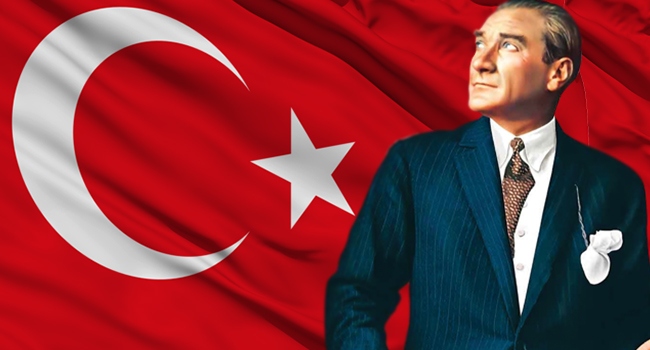Cumhuriyet stands as a monumental milestone in the history of Turkey, symbolizing the birth of a modern nation. Established in 1923, it marked a significant shift from centuries of imperial rule to a republic that embraced democracy and secularism. This transformation was not merely political; it resonated deeply within society, changing how people viewed their roles as citizens and shaping cultural identities.
As we delve into the story of Cumhuriyet, we uncover its importance not just for Turkey but also for the broader region. It serves as an inspiring example of resilience and innovation amidst challenges. Whether you’re familiar with Turkish history or new to its narratives, understanding Cumhuriyet is essential to grasping contemporary Turkish society and culture’s complexities. Join us on this journey through time to explore what makes Cumhuriyet such a pivotal chapter in both national and world history.
The History of Cumhuriyet
Cumhuriyet, meaning “Republic” in Turkish, emerged from the ashes of the Ottoman Empire. The transition began with World War I’s aftermath, which left Turkey vulnerable and fragmented.
In 1920, the Grand National Assembly was formed in Ankara. This marked a pivotal moment for Turkish nationalism. Leaders sought to unify various factions under a singular vision for a modern state.
By 1923, Mustafa Kemal Atatürk proclaimed Cumhuriyet as the new governance structure of Turkey. This establishment signified not just a political shift but also an ideological one. It aimed to create an independent nation-state grounded in secularism and democracy.
The history surrounding Cumhuriyet is rich with social transformation and struggle. Each step taken during this period laid crucial foundations for modernization that reverberate through society today.
Mustafa Kemal Atatürk: The Father of Modern Turkey
Mustafa Kemal Atatürk stands as a monumental figure in Turkish history. Often referred to as the Father of Modern Turkey, his vision transformed a fragmented empire into a cohesive nation-state.
Atatürk’s principles were rooted in modernization and secularism. He believed that education was key to progress and implemented widespread reforms in this area. His drive for literacy helped shape an informed citizenry.
He also advocated for women’s rights, ensuring they gained access to education and political participation. This shift challenged traditional norms and laid groundwork for future generations.
Another pivotal aspect of Atatürk’s legacy is his emphasis on national identity. He promoted cultural revival through art, literature, and language reform, fostering pride among citizens.
His leadership style was assertive yet visionary. While some criticized his methods, few can deny the lasting impact he had on redefining Turkey’s place in the world.
Key Changes Brought by the Cumhuriyet Era
The Cumhuriyet era marked a pivotal shift in Turkey’s trajectory, initiating sweeping reforms that reshaped the nation. One of the most significant changes was the establishment of a secular government. This move separated religion from state affairs, fostering an environment where diverse beliefs could coexist.
Education underwent transformative advancements as well. The introduction of modern schooling systems aimed to elevate literacy rates among citizens and promote scientific thinking. Women gained unprecedented rights, entering fields previously dominated by men and participating actively in public life.
Culturally, there was a push towards adopting Western influences while preserving Turkish heritage. Language reforms simplified script and vocabulary, making literature more accessible to all.
These key changes laid the groundwork for a progressive society, prioritizing innovation over tradition and setting Turkey on its path toward modernization.
Impact on Society: Political, Social, and Cultural Aspects
The impact of Cumhuriyet on Turkish society has been profound and multifaceted. Politically, it established a secular and democratic framework that replaced the Ottoman monarchy. This shift empowered citizens, fostering participation in governance.
Socially, Cumhuriyet heralded significant changes in gender roles. Women gained rights previously denied to them, including suffrage and access to education. This transformation reshaped family structures and societal expectations.
Culturally, the era encouraged a renaissance of arts and literature. New forms of expression emerged as traditional practices blended with modern influences. Schools flourished, promoting literacy rates across the nation.
Moreover, language reforms standardized Turkish by replacing Arabic script with Latin letters. This not only made learning more accessible but also contributed to national unity.
These revolutionary changes laid the groundwork for a progressive Turkey while challenging deep-seated traditions that had persisted for centuries.
Challenges Faced by Cumhuriyet in Modern Times
Cumhuriyet has faced numerous challenges in contemporary Turkey. Political polarization has become increasingly visible, affecting unity and dialogue among citizens. Different factions often contest the core principles of Cumhuriyet.
Economic struggles also pose significant hurdles. Fluctuating inflation rates and unemployment have led to discontent among the public. Many question whether the original ideals of Cumhuriyet can adequately address these modern economic realities.
Social issues add another layer of complexity. The rise of nationalism and conservatism presents a challenge to secular values established during its founding era. This shift raises concerns about preserving the democratic framework envisioned by Mustafa Kemal Atatürk.
Additionally, external pressures from global politics influence domestic policies, complicating efforts to maintain independence while navigating international relations. All these factors contribute to an ongoing debate surrounding the relevance and evolution of Cumhuriyet today.
Future Prospects for the Legacy of Cumhuriyet
As Turkey moves further into the 21st century, the legacy of Cumhuriyet remains a vital part of its identity. This foundation offers a blueprint for navigating contemporary challenges.
The principles established during this era continue to shape political discourse. Democratic values are increasingly emphasized as citizens demand transparency and accountability from their leaders.
Culturally, there is a renewed interest in Atatürk’s vision of modernization. Many young artists and intellectuals draw inspiration from the ideals of Cumhuriyet to address current societal issues.
Socially, movements advocating for gender equality and minority rights echo the progressive changes initiated by Cumhuriyet. These efforts reflect an evolving society that seeks inclusivity while honoring its historical roots.
The future will likely witness ongoing debates about how best to embody these foundational principles. The relevance of Cumhuriyet may adapt but will undoubtedly endure as an essential touchstone in Turkish society.
Conclusion
The establishment of Cumhuriyet marked a turning point in Turkish history. It signified the birth of a modern nation-state, striving for progress and reform. With Mustafa Kemal Atatürk at its helm, significant changes shaped political structures, social norms, and cultural expressions. The impact on society was profound; education flourished, women’s rights advanced, and secularism became intertwined with governance.
However, challenges remain as Cumhuriyet faces contemporary issues such as political polarization and social unrest. Yet the legacy endures. As Turkey navigates through complexities today, reflecting on the ideals of Cumhuriyet can inspire future generations to uphold democracy and foster unity.
The journey continues—one where every citizen plays a part in honoring this foundational chapter while looking ahead with hope for what is yet to come.






